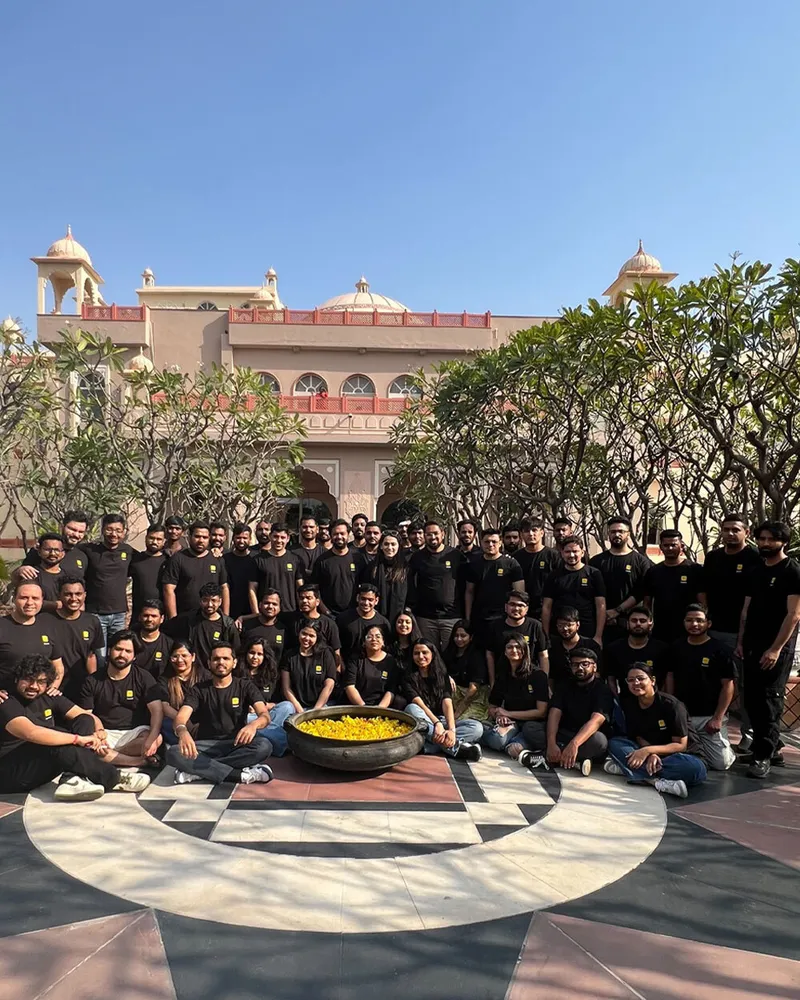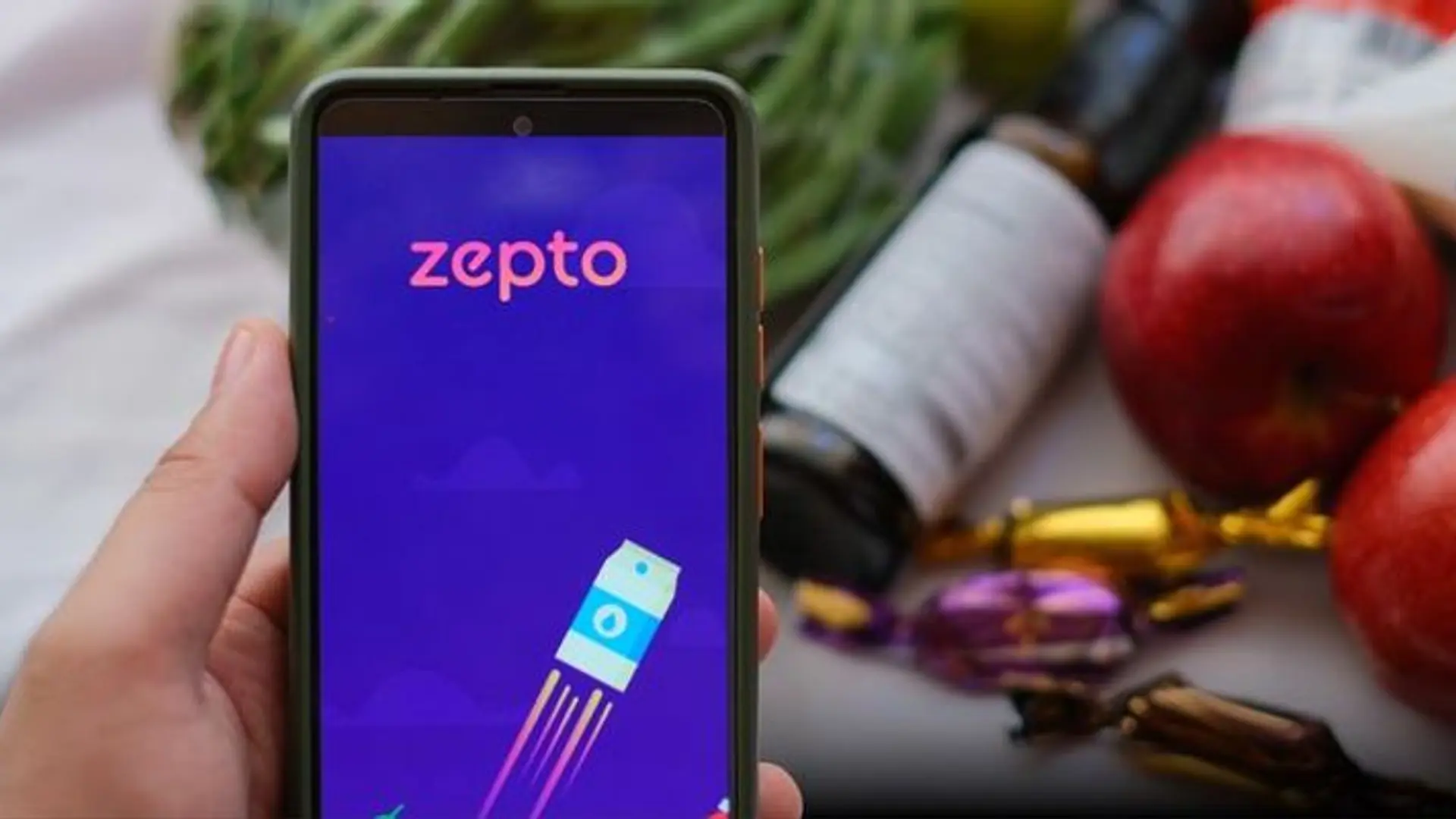Hunch is betting big on polls to stand out in the crowded social media sphere
Founded in 2022, India- and Dubai-based social media app Hunch recently raised $23 million in funding from Alpha Wave Global and Hashed.
Since the internet boom, social networking has taken a life of its own.
From Six Degrees introducing the concept in 1997, MySpace popularising social networking in 2003, to players like Facebook, Snapchat, and Twitter (now X) bringing different features like finding friends and posting pictures. These platforms also created the first slew of internet celebrities, made videos more accessible, and reunited lost friends.
For over two decades, only a few large players continue to dominate the market—from Meta’s Facebook and Instagram to Snapchat and X. In India, too, several companies have attempted to challenge the stronghold—from serving as a homegrown alternative of X to , , and Takatak attempting to fill the void after TikTok’s ban.
Still, many players, both globally and domestically, have been unable to crack the incumbents. Attempting to do just that is , a new-age social media network that uses polls as a way to drive social media experiences.
Authenticity is something that most apps today lack, says Hunch Co-founder and CEO Ish Goel, who earlier founded , a Web3 gaming company.
How ZEE’s Hipi is chasing after the short video market
"If you look at the basic insight into how humans operate, most people typically want to follow something else even if they have their own opinion… this disturbed me to some extent,” he tells YourStory. “That’s when I wondered if there is a way to give power to expression in a way that’s sort of a mini declaration of how you feel.”
With this aim, Goel, Nitika Goel (CPTO), and Kartic Rakhra (CMO) founded Hunch in 2022 as a social media app to empower users to share their opinions on varied topics anonymously. Since its inception, it has over a million registered users across India and the US, with about 220,000 monthly active users.
The India- and Dubai-based firm recently raised $23 million in a funding round led by Alpha Wave Global and Hashed.
Putting polls at the centre
While several apps use text or photos as the main way to communicate on their platform, Hunch uses polls. Per Goel, this is an underused feature in the social media space.
“Historically it’s been a very non-sexy format and is usually seen as something used in surveys,” he says. “We eventually thought we could make them interesting.”
Hunch users, particularly the younger user base as per Goel, ask questions about their day-to-day lives using polls. For instance, if someone needs help deciding what to wear to work, they can essentially convert that question into a poll and seek their audience’s response.
While Goel agrees that incumbent players like Linkedin and X also utilise polls, he asserts that it is not their primary feature. To be a standout player, he says it is important to be specialised.
“I think the intent ultimately is the differentiator. When a user comes onto Hunch say, versus, Instagram, the intent is to share your opinions… every time someone comes on here, it is to declare their point of view on a subject,” he explains.
On Hunch, people can also express their views via comments.
While users are anonymous to each other, Hunch filters out bot accounts with its in-app reputation system driven by ‘Vibe score’ to differentiate between good and bad actors. It is also implementing a two-factor authentication system based on the user’s mobile number for its Circles feature—which enables its users to form a closed group. The startup plans to roll out the authentication system across the app.
Building a social network
The social networking app market is estimated to be valued at around $81.4 billion in 2024 and is expected to reach $179 billion by 2029, as per research firm Mordor Intelligence.

The team behind Hunch. Photo credits: Hunch
It’s no secret that social media apps have continued to struggle with figuring out monetisation problems. Goel acknowledges this too.
“Consumer social businesses can be capital intensive… US social media apps have been able to enter India and scale massively because of their user base in India… it definitely takes time to build network effects,” he says, adding that Hunch comes on the back of these tailwinds over the last 10 years to better understand the user behaviour culture.
While Hunch does not have a definite monetisation plan in place, it is exploring all channels, including advertisements, in-app purchases, and business-to-business (B2B) partnerships.
Goel notes that the growth of LLMs (Learning Language Models) can help newer apps like Hunch solve problems quicker than the industry incumbents. The company uses AI for content moderation.
Though Hunch launched its mobile app just last year, it already has more than a million downloads on Google Play Store and a rating of 3.8. It is also available on the Apple App Store.
What’s next for Hunch?
The company plans to immediately focus on hiring following the fundraise and expand its team size of 60-70 members. However, Hunch isn’t looking to become a 200-member team company any time soon, Goel says.
It is looking to grow its user base through word-of-mouth strategies.
It will also be placing a focus on building out its presence in the US as it is an English-speaking country with a potentially massive userbase. “It's an audacious goal; what we're trying to achieve is a very difficult one, and having some support, especially of those who have backed us definitely helps us achieve this vision,” Goel says.
(Cover image by Nihar Apte.)
Disclaimer: This story has been updated to correct factual errors.
Edited by Kanishk Singh








